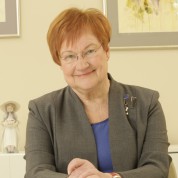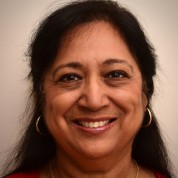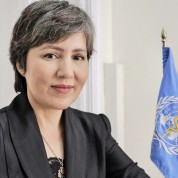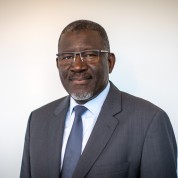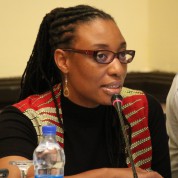WS402
The Lancet-SIGHT Commission on Peaceful Societies Through Health and Gender Equality - Health and Gender at the Intersection of Armed Conflict and the COVID-19 Pandemic
Contact Person : Peter Friberg, peter.friberg@mednet.gu.seThe Lancet-SIGHT Commission on Peaceful Societies through Health and Gender Equality is dedicated to generating new evidence and practical recommendations on how improved health and gender equality can help contribute to more peaceful societies.
Armed conflict is one of the global community’s most pressing challenges, causing significant destruction and major barriers to peace and prosperity. Annual deaths from armed conflict remain at one of the highest levels in the past two decades.[1] Civil wars involving international actors are increasingly prevalent, which is a worrisome trend as these conflicts tend to be more severe, protracted, and difficult to resolve.[2] The consequences of conflict are felt worldwide, not least due to massive forced displacement. According to UNHCR, the UN’s Refugee Agency, there were 79.5 million other forcibly displaced people in 2019, largely due to armed conflict. The number of displaced people today is nearly double the 2010 number of 41 million.[3]
On 23 March 2020, the UN Secretary General called for a global ceasefire to facilitate humanitarian action in conflict affected settings, including pandemic response activities. The UN Secretary General expressed deep concern that COVID-19 will make the protection of civilians during armed conflict more challenging than ever, warning that the pandemic is amplifying and exploiting fragilities across the world, including gender inequality.
However, COVID-19 continues to present a number of challenges to peacebuilding, and the dynamics of armed conflict also presents a number of barriers for effect pandemic response.[4] Experts suggest that the responses to COVID-19 in conflict-affected settings must incorporate and address gender inequalities, conflict dynamics, and the larger socio-political context. However, the relationship between gender, health, and conflict, including during the pandemic, are not well understood.
[1] Uppsala Conflict Data Program. 2020. UCPD Conflict Encyclopedia (UCPD database). Department of Peace and Conflict, Uppsala University. https://ucdp.uu.se/exploratory Accessed 10/6/2020
[2] Balch-Lindsay D, Enterline AJ, Joyce KA. Third-party intervention and the civil war process. Journal of Peace Research 2008; 45(3): 345–363. https://doi.org/10.1177/0022343308088815
[3] United Nations High Commissioner for Refugees. Global Trends: Forced Displacement in 2018. 2019; UNHCR, Geneva. https://www.unhcr.org/5ee200e37.pdf
[4] Lancet-SIGHT Commission and WHO EMRO. COVID-19 pandemic: an opportunity and a barrier to health as a bridge for peace in fragile and conflict-affected countries. Policy Brief. Aug 2020. https://sight.nu/wp-content/uploads/2020/08/Policy-Brief-COVID19-pandemic-an-opportunity-and-barrier-to-HBP-140820.pdf
Hosted by the Lancet-SIGHT Commission on Peaceful Societies through Health and Gender Equality, this webinar will preview the Commission’s research on the relationships among health equity, gender equality, and peaceful societies. Speakers will examine the impact of the COVID-19 pandemic in fragile and conflict-affected settings. The Commission argues that interventions to promote gender equality and health equity must be part of the effort to “build back better” after the pandemic. Such interventions must be acutely aware of the patterns of health inequity and gender inequality revealed by COVID-19 and explicitly work to address them. Experts will share their research as well as provide suggestions for how interventions to promote gender equality and health equity could contribute to the “reset” and better address the layered challenges of COVID-19 and armed conflict.
The webinar objectives are to:
- Present the Lancet-SIGHT Commission’s conceptual framework on the relationships among gender equality, health equity and peaceful societies
- Discuss the COVID-19 pandemic in the context of conflict-affected settings, with a focus on its impact on health inequities and gender equality
- Examine how the pandemic has deepened gender inequalities, reflected in higher levels of gender-based violence, reduced access to comprehensive sexual and reproductive health services, and a higher burden on health workers
- Examine how the pandemic has impacted on violence against humanitarian aid, including the delivery of health services by humanitarian actors
- Gather feedback on the Lancet-SIGHT Commission’s work related to the health and gendered impact of COVID-19 in conflict-affected settings
- Identify how countries and the international community can best respond to the layered challenges of the pandemic and armed conflict, with a focus on health inequities and gender inequalities
SPEAKERS
Biosketch
Akjemal Magtymova
Anju Malhotra
Elhadj As Sy
Jason Phillips
Shuvai Busuman Nyoni
Tarja Halonen
Valerie Percival
Yoka Brandt



